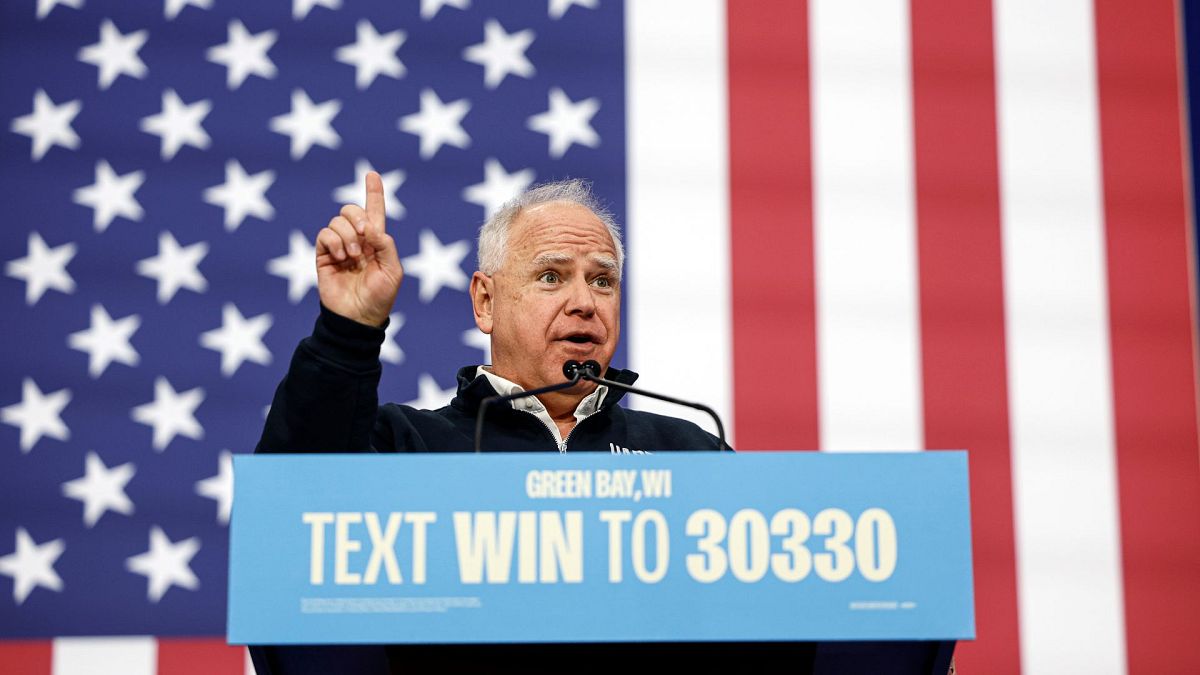Healthcare is a crucial issue in the upcoming election, with Democratic vice presidential nominee Tim Walz unveiling the Harris-Walz campaign’s plan to improve rural voters’ lives. The plan focuses on rural healthcare and economic priorities, aiming to recruit 10,000 new healthcare professionals in rural and tribal regions through scholarships, loan forgiveness, and grant programs. This strategy is part of an effort to win over rural voters, a historically Trump-leaning demographic. With the race expected to be competitive, both Democrats and Republicans are targeting voters beyond their traditional bases.
During a visit to rural Lawrence County, Pennsylvania, Walz announced the plan, highlighting the importance of addressing rural healthcare needs. Additionally, a new radio ad featuring Walz promotes his small-town roots while criticizing Trump and his running mate, Ohio Senator JD Vance. The ad will air on over 500 rural radio stations in swing states such as Georgia, Michigan, North Carolina, Pennsylvania, and Wisconsin. The Harris-Walz plan includes proposals to extend telemedicine coverage under Medicare permanently, support volunteer emergency medical response programs, and reinstate the Affordable Connectivity Program to reduce home internet costs. It also supports legislation allowing farmers to repair their own equipment, addressing a key concern for rural voters.
In the 2020 election, President Trump won rural voters by a significant margin, making it a crucial demographic for both parties in the upcoming election. The Harris-Walz campaign’s focus on rural healthcare and economic priorities aims to sway rural voters towards the Democratic ticket. By emphasizing the recruitment of healthcare professionals in rural areas and supporting initiatives such as telemedicine coverage and affordable internet access, the campaign hopes to attract support from this vital voting bloc. The efforts to win over rural voters reflect the competitiveness of the election, with both Democrats and Republicans targeting voters beyond their traditional bases.
Walz’s announcement of the Harris-Walz plan in rural Pennsylvania underscores the importance of addressing healthcare needs in rural communities. By advocating for initiatives such as increased healthcare workforce recruitment and support for volunteer emergency medical response programs, the campaign seeks to address the unique challenges faced by rural areas. The focus on rural healthcare reflects a broader effort to improve the lives of individuals living in rural and tribal regions, highlighting the campaign’s commitment to addressing healthcare disparities across different demographic groups.
The radio ad featuring Walz emphasizes his ties to rural communities and positions him as a candidate who understands the concerns of rural voters. By criticizing President Trump and highlighting policy proposals to support rural healthcare and economic priorities, the ad aims to appeal to voters in key swing states where rural voters play a significant role. The targeted approach of airing the ad on rural radio stations demonstrates the campaign’s efforts to reach rural voters directly and communicate its message effectively. By addressing issues such as access to healthcare and affordable internet, the Harris-Walz campaign seeks to resonate with rural voters and garner their support in the upcoming election.
Overall, the focus on rural healthcare and economic priorities in the Harris-Walz campaign’s plan underscores the significance of addressing the needs of rural communities in the upcoming election. By proposing initiatives to recruit healthcare professionals, expand telemedicine coverage, and support affordable internet access, the campaign aims to improve the lives of individuals living in rural and tribal regions. The efforts to win over rural voters reflect the competitiveness of the election and the importance of targeting key demographic groups. With both Democrats and Republicans vying for support beyond their traditional bases, the outcome of the election may hinge on the ability to attract voters in rural areas through tailored policy proposals and targeted messaging.










